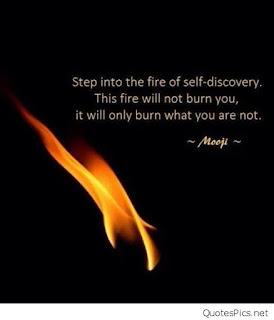Transformational Forgiveness
Forgiveness is difficult. By forgiving someone who wronged you, you try to inculcate patience and forbearance in your relations with others. The wound that one gets from others are very deep sometimes and we cannot ever think of forgiving that person who gave us those wounds and pain. But contrary to this what majority of us believe, is that forgiving someone is primarily an act which we perform within ourselves. At times, it is safer and healthier for a person to disconnect from the one that hurt you because he / she is not around you to be forgiven directly. But these factors are not the hurdles to forgiveness; the factors are internal. It is you who has to free your self from this anger.
We are stuck in anger before we tread on the path to forgiveness. During this phase we plot for revenge, we think of inflicting all the pain and damage which was inflicted upon us. We are in the mode of 'An eye for an eye'. But as observed, revenge is the path of the ignorant. One is in complete denial of the negativity which revenge will bring upon you. One thinks that taking revenge will make you feel good because of how the person will react to that revenge. But what if your plan of revenge backfires? What if you did not receive the response that you fantasized while planning for it? You will be in more pain now.
The next level is the level of 'transformational forgiveness' where one forgives in the mode of goodness. When one reaches this level, one gains the strength and calmness to forgiving without anything in return. The last level is the highest on the ladder of forgiveness: 'unconditional forgiveness.' This is the kind of forgiveness that parents demonstrate for their child. No matter whatever a child does, parents always forgive them. One does not need to aim for this level but one can at least achieve the path of transformational forgiveness to live in peace rather than harboring grudges on the one who inflicted pain to you.




Comments
Post a Comment